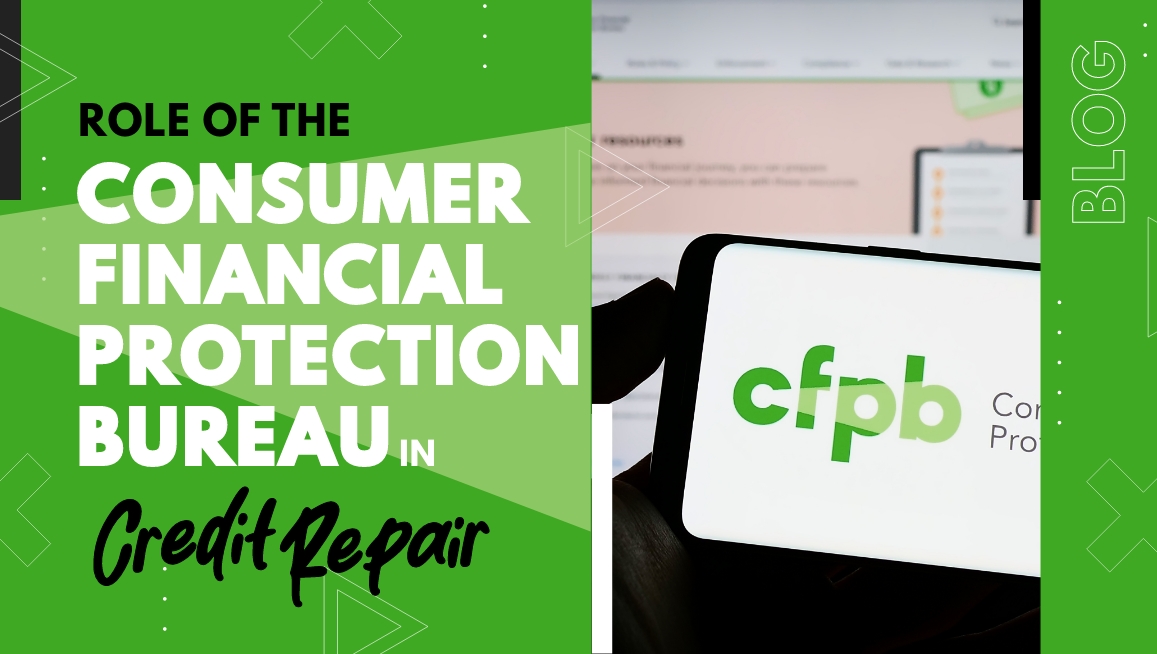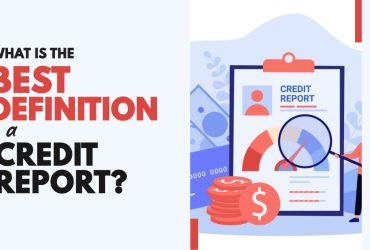Role of the Consumer Financial Protection Bureau in Credit Repair
by Almas Tariq
December 13, 2024
05:04 PM

The Consumer Financial Protection Bureau (CFPB) is a cornerstone of financial consumer protection in the United States. Since its inception, the CFPB has transformed the financial services landscape by ensuring transparency, promoting fairness, and holding businesses accountable. In the credit repair industry, the CFPB’s role is indispensable.
For credit repair businesses, understanding and aligning with CFPB regulations is more than a legal obligation; it’s a pathway to building trust, credibility, and long-term success. The CFPB enforces vital credit repair laws like the Credit Repair Organizations Act (CROA) and the Fair Credit Reporting Act (FCRA), shaping the standards for ethical operations. Businesses that prioritize compliance not only safeguard themselves from penalties but also differentiate themselves as leaders in the field.
This blog will explore the CFPB’s role in credit repair, its regulatory framework, and actionable insights for businesses. By the end, you’ll have a comprehensive understanding of why CFPB compliance is critical and how it can be leveraged for growth.
-
Understanding the Consumer Financial Protection Bureau (CFPB)
History and Purpose
The CFPB was established in 2010 under the Dodd-Frank Wall Street Reform and Consumer Protection Act. It was created in response to the 2008 financial crisis, which exposed systemic issues in the financial sector. The bureau’s mission is clear: to protect consumers from unfair, deceptive, and abusive practices while ensuring they have access to transparent financial products and services.
Before the CFPB, oversight of consumer financial protection was fragmented across multiple agencies, leading to inconsistencies and loopholes. The CFPB unified these efforts, becoming the sole entity dedicated to protecting consumers across all financial sectors, including credit repair.
Authority and Scope
The CFPB’s authority spans a wide range of financial products and services, from mortgages and credit cards to debt collection and credit repair. For credit repair businesses, the CFPB oversees compliance with laws that regulate how services are marketed, delivered, and charged. This includes monitoring:
- Transparency in service agreements.
- Accuracy in claims about results.
- Fair practices in dispute resolution and client interactions.
The CFPB has the power to conduct investigations, issue fines, and enforce corrective actions against businesses that violate regulations.
Connection to Credit Repair
The credit repair industry directly impacts consumers’ financial well-being, making it a key focus for the CFPB. The bureau ensures that credit repair companies operate ethically, provide accurate information, and adhere to legal standards. It also addresses consumer complaints, offering a platform for individuals to report issues like false promises or hidden fees.
-
Key CFPB Regulations Impacting Credit Repair Businesses
Compliance with CFPB regulations is not optional for credit repair businesses; it is the foundation of ethical operations. Understanding these regulations is critical for navigating the industry.
Credit Repair Organizations Act (CROA)
CROA is a federal law that governs credit repair businesses, ensuring transparency and protecting consumers from deceptive practices. Enforced by the CFPB, CROA mandates:
- Written contracts that clearly outline services, costs, and timelines.
- A ban on charging fees before services are delivered.
- Prohibition of misleading claims about guaranteed results.
For example, a credit repair business cannot promise to remove legitimate negative information from a client’s credit report. Educating clients about these provisions builds trust and aligns expectations.
Fair Credit Reporting Act (FCRA)
The FCRA regulates the accuracy, fairness, and privacy of credit reporting. It grants consumers the right to:
- Dispute inaccuracies in their credit reports.
- Access their credit information annually for free.
- Hold credit bureaus accountable for correcting errors.
The CFPB enforces FCRA by ensuring credit repair companies act as advocates for their clients. Businesses must assist clients in filing disputes effectively and within legal parameters.
Telemarketing Sales Rule (TSR)
The TSR protects consumers from aggressive telemarketing practices, particularly when fees are charged before results are delivered. For credit repair companies, this means:
- No upfront fees can be collected for telemarketing-based services.
- Clear disclosures must be provided during calls.
- Calls must comply with time restrictions and do-not-call lists.
Businesses that engage in telemarketing must train staff to follow TSR guidelines meticulously.
CAN-SPAM Act Compliance
The CFPB also enforces the CAN-SPAM Act, which regulates email marketing. Credit repair businesses must ensure:
- Honest subject lines that reflect the content of the email.
- A clear opt-out mechanism for recipients.
- Transparency about the sender’s identity.
Failing to comply with this act can damage a business’s reputation and lead to legal repercussions.
-
The CFPB Complaint Database and Credit Repair Disputes
Overview of the Database
The Consumer Financial Protection Bureau (CFPB) maintains a comprehensive complaint database that serves as a crucial tool for both consumers and credit repair businesses. This public repository catalogs thousands of grievances related to various financial services, including those involving credit repair companies. The database reflects consumer concerns about service quality, transparency, and compliance, providing insight into recurring industry challenges.
By allowing the public to view these complaints, the CFPB fosters transparency and accountability in the financial sector. For credit repair businesses, the database offers an unparalleled opportunity to understand the most pressing consumer issues and identify areas requiring improvement. Complaints within the credit repair industry often touch on key issues such as unclear service agreements, poor communication, and deceptive marketing practices, all of which can significantly undermine consumer trust.
The CFPB’s complaint database is not static; it is a dynamic resource that evolves as new concerns emerge. Each entry includes detailed information about the complaint, the company involved, and the resolution (if any). This transparency allows credit repair businesses to benchmark their practices against industry norms and take proactive measures to enhance their service quality.
Trends in Credit Repair Complaints
An analysis of the CFPB’s complaint database reveals patterns that are both troubling and instructive. Recurring issues in the credit repair industry include:
- Misleading Claims: Many complaints involve businesses that promise guaranteed improvements to credit scores or claim they can remove legitimate negative information. These false assurances not only violate credit repair laws but also erode trust within the industry.
- Hidden Fees and Pricing Confusion: Some businesses fail to clearly disclose their pricing structures, leading to unexpected costs for clients. Transparency in contracts and service agreements is critical to avoiding these disputes.
- Unfulfilled Promises and Poor Communication: Complaints frequently mention unresponsive customer service or failure to deliver agreed-upon results. Clients often report feeling abandoned after the initial consultation or during the dispute resolution process.
For instance, a common scenario involves a business claiming it can erase legitimate debts or late payments from a client’s credit report. Not only is this illegal under CROA, but it also sets unrealistic expectations that lead to dissatisfaction and complaints
How Businesses Can Use the Database
The CFPB complaint database is a valuable tool for credit repair businesses striving for continuous improvement. By analyzing trends in complaints, businesses can identify potential vulnerabilities in their operations and implement strategies to address them. Here’s how companies can use this resource effectively:
- Revise Service Agreements: Clear, detailed contracts can prevent misunderstandings about the scope of services, pricing, and timelines.
- Improve Communication Practices: Regular updates and transparent communication help manage client expectations and build trust.
- Align Marketing Materials with Regulatory Standards: Ensuring that advertisements and promotional content comply with CFPB regulations minimizes the risk of misleading claims.
By taking these proactive steps, businesses can reduce complaints, improve client satisfaction, and enhance their reputation within the industry.
-
The Role of CFPB in Educating Credit Repair Businesses
The CFPB’s responsibilities extend beyond enforcement; it also serves as an educational resource for credit repair businesses. Through its initiatives, the bureau aims to simplify compliance and promote ethical practices.
Educational Resources
The CFPB provides a wealth of educational materials tailored to help credit repair companies navigate regulatory complexities. These resources include:
- Guides and Toolkits: Detailed manuals explain key laws like CROA, FCRA, and TSR, offering actionable insights for compliance.
- Webinars and Workshops: Interactive sessions address common challenges in credit repair, such as dispute resolution and ethical marketing.
- Audit Tools: Checklists and templates allow businesses to evaluate their practices and identify areas needing improvement.
These resources are designed to make compliance accessible, even for small or newly established businesses. For example, a CFPB-hosted webinar on CROA compliance might cover best practices for drafting service agreements, ensuring companies have the tools they need to operate within the law.
Promoting Best Practices
The CFPB emphasizes the importance of best practices in fostering trust and transparency. Key recommendations include:
- Providing Clear Contracts: Agreements should outline services, timelines, costs, and legal protections in plain language.
- Setting Realistic Expectations: Businesses must avoid overpromising results, focusing instead on achievable goals within the framework of credit repair laws.
- Educating Clients: Teaching clients about their rights under laws like FCRA builds trust and reduces disputes.
By adhering to these best practices, credit repair businesses can differentiate themselves as ethical and client-focused organizations.
Collaboration with Industry Leaders
The CFPB collaborates with software providers and industry experts to enhance compliance across the credit repair sector. Modern credit repair business software streamlines processes like contract generation, dispute tracking, and client communication, making it easier for companies to meet regulatory standards. These partnerships ensure that businesses have access to cutting-edge tools and support, fostering a culture of accountability and efficiency.
-
Challenges and Opportunities for Credit Repair Businesses Under CFPB Oversight
Compliance Challenges
Navigating the CFPB’s regulatory framework can be daunting, particularly for new or small credit repair businesses. Common challenges include:
- Staying Updated: Regulations like FCRA and TSR evolve over time, requiring businesses to monitor updates regularly.
- Training Staff: Employees must understand and adhere to legal requirements, which necessitates ongoing training programs.
- Balancing Transparency with Marketing: Striking a balance between effective promotion and regulatory compliance can be challenging.
Failure to address these challenges can lead to fines, lawsuits, or reputational damage. However, businesses that invest in compliance are better positioned to thrive in a regulated environment.
Opportunities for Ethical Businesses
While CFPB regulations may seem restrictive, they offer significant opportunities for businesses committed to ethical practices. By prioritizing compliance, companies can:
- Enhance Trust: Transparent operations build confidence among clients, fostering long-term relationships.
- Attract Quality Clients: Clients seeking ethical services are more likely to choose businesses that align with CFPB standards.
- Differentiate Themselves: In a competitive market, compliance can serve as a unique selling point, setting businesses apart from less scrupulous competitors.
Ethical businesses often enjoy higher retention rates and stronger referral networks, demonstrating the tangible benefits of aligning with CFPB guidelines.
The Role of Technology
Technology plays a crucial role in helping businesses navigate CFPB regulations. Advanced software solutions offer features like:
- Automated Compliance Checks: Ensure that contracts, communications, and disputes meet regulatory requirements.
- Real-Time Updates: Provide clients with accurate, timely information about their credit repair progress.
- Data Analysis Tools: Monitor key performance metrics to identify areas for improvement.
By integrating these tools into their operations, businesses can streamline compliance, reduce errors, and enhance client satisfaction.
-
Measuring the Impact of CFPB Regulations on the Credit Repair Industry
Enhancing Consumer Trust
The Consumer Financial Protection Bureau (CFPB) has redefined how clients perceive the credit repair industry. Before its establishment, the lack of centralized oversight led to widespread skepticism about credit repair services. With CFPB regulations in place, clients now have a safeguard against unethical practices, instilling confidence in their interactions with credit repair businesses.
CFPB oversight ensures that businesses adhere to ethical standards, such as providing accurate information, avoiding deceptive marketing, and delivering promised services. This level of accountability reassures clients that they are working with professionals who prioritize their best interests. For instance, the CFPB’s enforcement of the Credit Repair Organizations Act (CROA) protects clients from upfront fees and misleading claims, allowing them to trust the process without fear of exploitation.
The trust fostered by CFPB regulations goes beyond individual transactions. Clients who experience transparent and honest credit repair services are more likely to share positive reviews and refer others. This creates a ripple effect, gradually reshaping the industry’s reputation and positioning compliant businesses as trustworthy partners in financial improvement.
Fostering Fair Competition
In a competitive marketplace, unethical practices can distort fair competition. The CFPB addresses this issue by enforcing uniform standards across the credit repair industry, leveling the playing field for all businesses. Companies that operate with integrity can now compete based on the quality of their services rather than deceptive tactics or aggressive marketing.
For example, businesses that comply with the Fair Credit Reporting Act (FCRA) and Telemarketing Sales Rule (TSR) are less likely to face fines, lawsuits, or reputational damage. This compliance allows them to focus on delivering exceptional results and building long-term relationships with clients. Meanwhile, non-compliant companies are either forced to adapt or risk being penalized, creating an industry where merit and ethics take precedence over manipulation.
Fair competition also drives innovation. Ethical businesses are motivated to invest in technology, staff training, and client education to differentiate themselves further. This benefits not only the companies but also the clients, who receive higher-quality services and a better overall experience.
Encouraging Industry Growth
The CFPB’s commitment to transparency and accountability has had a transformative effect on the credit repair industry. By addressing long-standing issues like misleading advertising and inadequate dispute resolution, the bureau has paved the way for sustainable growth.
One of the key drivers of industry growth is the enhanced credibility that comes with compliance. Businesses that align with CFPB regulations demonstrate their commitment to ethical practices, attracting clients who value professionalism and integrity. This credibility not only boosts client retention but also opens doors to partnerships with other financial institutions, such as lenders and credit counseling agencies.
Moreover, the CFPB’s emphasis on education encourages businesses to invest in their own growth. Companies that leverage CFPB resources—such as guides, webinars, and best practice tools—are better equipped to adapt to regulatory changes and improve their operations. This proactive approach ensures that businesses remain competitive in an evolving marketplace.
The CFPB’s regulatory framework also creates opportunities for technological advancement. Modern credit repair business software simplifies compliance by automating processes like dispute tracking, contract generation, and client communication. These tools enable businesses to scale their operations efficiently while maintaining high standards of service.
As the industry continues to grow, businesses that prioritize compliance and innovation will thrive. The CFPB’s role in fostering this environment underscores its importance as a catalyst for progress in the credit repair sector.
Conclusion
The Consumer Financial Protection Bureau plays a critical role in ensuring accountability, fairness, and transparency within the credit repair industry. By enforcing essential laws such as CROA, FCRA, and TSR, the CFPB creates a framework that protects consumers and holds businesses to high ethical standards. For credit repair companies, aligning with these regulations is not just a legal obligation but a chance to build trust and credibility with clients.
CFPB oversight has transformed the industry by fostering consumer trust, leveling the competitive landscape, and encouraging innovation. Ethical businesses that prioritize compliance and transparency not only protect themselves from penalties but also position themselves as leaders in the field. By leveraging CFPB resources and embracing best practices, these companies can deliver exceptional service while driving sustainable growth.
Ultimately, the CFPB’s impact extends beyond regulation—it provides businesses with the tools and guidance needed to thrive in a client-focused, ethical marketplace. By committing to compliance, credit repair companies can enhance their reputation, build long-term relationships, and contribute to an industry that empowers consumers and fosters financial success.
References:
Table of Contents
Explore More Insights
Dive deeper into a wealth of knowledge. Discover a multitude of articles covering diverse topics, expert perspectives, and the latest trends. Feed your curiosity and expand your understanding.



